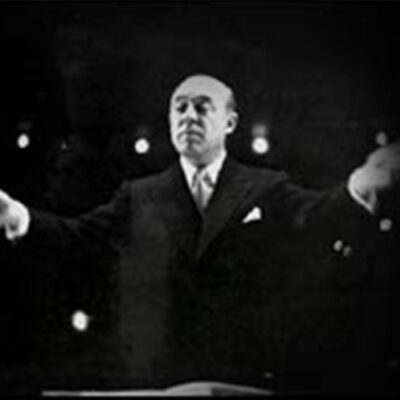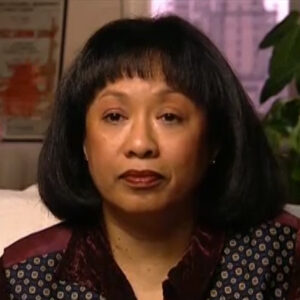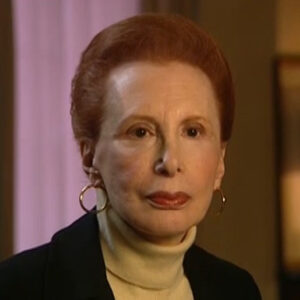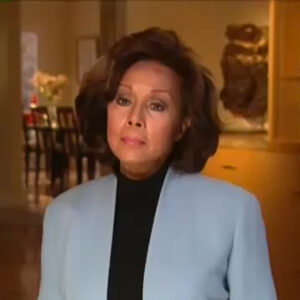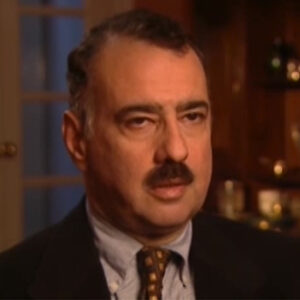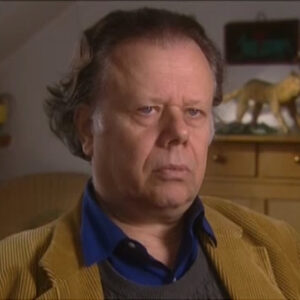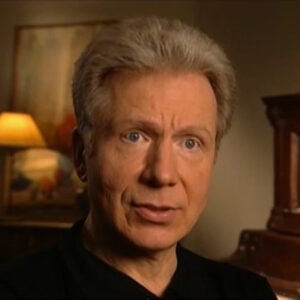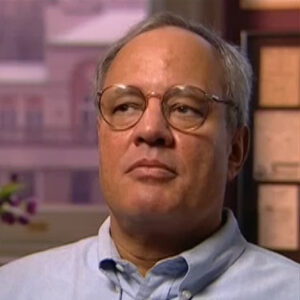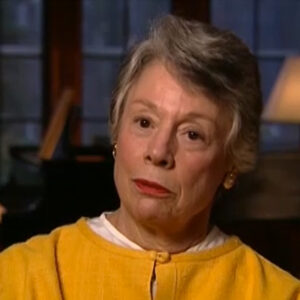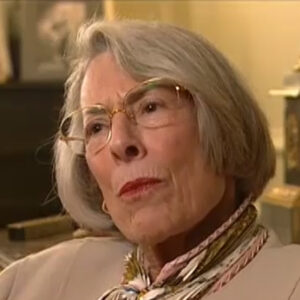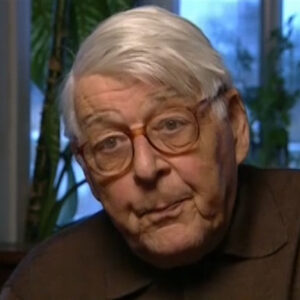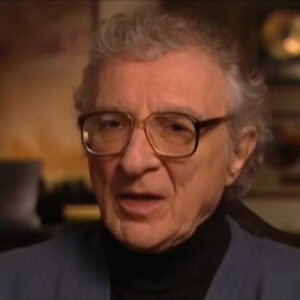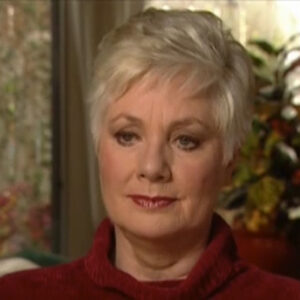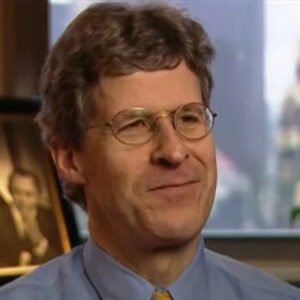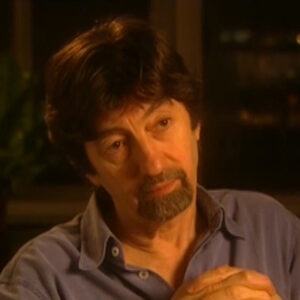Speaker 1 Start by talking about Broadway in the 30s and mentioned Broadway and mention the 30s, what what was it like? I know you came out of performing at the Cotton Club.
Speaker 2 Mm hmm. Let’s compare Broadway and the Cotton Club. Well, in 1930, that’s when my brother and I really started and the place we started in vaudeville in Philadelphia and played all the theaters. And then we opened that the Lafayette Theater in Manhattan. And we we did a motion picture called Pappi Blackbird. And right after that, we went into the Cotton Club and we were Kostyan, with Cab Calloway and the the the Broadway shows that we did the place. One was the Ziegfeld Follies and was an all star cast like Fanny Brice, Josephine Baker and Bob Hope, Ívar and Judy Kenova. Good to. It was an all star show and negotiables, and that was our first Broadway show. And we had a great time, great time. And then and then we’d always go back to the Cotton Club that was like home. And and then right after that, we went to Europe and we started a show called La Lunacies Blackwood’s. And Johnny Moisy was the composer and he composed two songs called My No Keep It Twinkle in Your Eye. And the other one was Geohot in Mind. And we we sang these songs and dance them and we made made a record over there in in London, England, and was his master’s voice, which is RCA Victor here in America. And then after we did the show in London, then we went back to New York and we went to a show called Babes in Arms and in Babes. Now, there was this wonderful choreographer, George Balanchine. Now we were at the Cotton Club. This was in 1937 at the Cotton Enjoys Balanchine wanted us to be in the show because we worked with him in the Ziegfeld Follies. And so he wanted us in the show called Babes in Arms. And we went to the theater that he was sitting in the audience. And at that time I met him and I met Richard Rodgers and Larry Hart and I found out all this wonderful music that Richard Rodgers had wrote for this song. But I mean, for this this show, Babes in Arms Like The Lady Is a Tramp and My Funny Valentine, where or when? Johnny One note, all the songs were great hits. And there was also a song that they wrote for the Nicholas Brothers called Old People is Light on their Feet. I didn’t like that song at all. Not at all. Now my mother, she said, you have to sing this song because it’s written for the magazine out. Say, don’t say all the people is light on their feet. You say all dog people are light on their feet. But I still hated the song and we did it opening night at the Schubert Theater here in Manhattan. And it was a big success. And then after that first performance, the place opening, the stage manager told us the next day said, listen, you’re not singing the song, right? This was the old dog. People is light on their feet. So I went along with that for a week. And then I went back to all dog people all lately. But I still hated the song.
Speaker 1 Whether you were aware of Richard Rodgers, Rodgers and Hart before Babes in Arms.
Speaker 2 No, I. The first time that I met Richard Rodgers and Larry Hart, who was for the for the play legs and Arms, I hadn’t heard of them before, but when I heard them music, oh, I fell in love with it right away, because not only I would be humming that music after I hear them people in the audience, when they go into the lobby of the theater, they start humming these wonderful songs like Where Awin. Oh my like My Funny Valentine, Sweet Comic Valentine, my beautiful songs. You know,
Speaker 1 any time you want to sing your home for your free for as long as you.
Speaker 2 OK, do you have any hobbies?
Speaker 1 And so you’re absolutely right. Do you remember that first meeting? Can you talk about what happened, what they said.
Speaker 2 Mm hmm. Well well, let me tell you, because first I met George Balanchine and and so he said, hey, fellows, get up on the stage and do a little something for me. So we got to on stage and we sang a little song and I jumped over my brother’s head into a split. And my brother went through my legs in the split and just me said, Oh, that’s great. Come on out here. Come on back in. So we went back into I said and we started talking. That was great. I like that so much. He said, Did you ever take a ballet? We said, no, no, we never did. He say, well, it looks like it when I say thank you very much. And and then then we got a chance to meet Richard Rodgers and Larry Hart. And I was telling him these movies because they played it for us, all these different songs. And I told him how much we enjoyed it. And he said, thank you very much. And then then I met Larry Hart, and he was this little guy who had a big cigar. It was a little guy just walking around like he owned the world. And I saw that he would write lyrics and he could pick up an old paper bag, a brown paper bag and start writing his lyrics. And he was funny, but what a great lyricist. He was great.
Speaker 1 Great, excellent. Excellent. Um, I think low water. OK. Oh yeah. Hold on one second. Talk about that for a minute.
Speaker 2 All right. There. OK. Hmm. Oh, there were two guys in the show and they were like, when you go go on the road with show, you may be playing Boston, Philadelphia, Hartford, Connecticut. And this year
Speaker 1 and we got truck buses. There’s a bus stop.
Speaker 2 Oh, interference.
Speaker 1 And we’re going to start again. OK, go ahead. Start again from OK. Go on the road.
Speaker 2 All right. The nose was on the road between like in Boston, Philadelphia, Hartford, Connecticut. And there were two little guys in the show who were doing a role that we did later. And so George Balanchine, who that indicus it’s playing ever gotten close to. He wanted to come in to replace these little guys because as we we see in show business, they were not cutting the mustard. So he had to replace them. But it was very nice. They kept these two little guys in the show. They found something else for them to do, but they weren’t singing as well or dancing as well. So we replaced them and we had a great time in the show. Oh, it was wonderful. We met so many friends in the show, especially Mitzi Green, Mr. Green. She was wonderful. She became a very good friend of ours. And all of the other actors in the show
Speaker 1 talk about being an African-American and in any show on Broadway, but specifically Babes in Arms. Was there any controversy? Was there any problem or was it just
Speaker 2 not any kind of a break for that or that? Is it more and more and more? OK, not in babes, in arms. It was just like a family in babies that we all got along very well and we would invite each other to different parties at our homes. And, you
Speaker 1 know, that’s OK.
Speaker 2 And Mitzi Green would always invite us to her penthouse at the Essex house here in Manhattan. And we go up there and have lunch with her. And it was just like a family. We know now when the Ziegfeld Follies was a little trouble because Josephine Baker was on this show and she just returned from Europe. She was the toast of Paris. Now she comes to America and she’s getting all this president visit again what she left and they would just wasn’t treating her. Well, she did have banana thing that she does, but she’s very famous today where she had the banana zone and she just shaking. And in Paris, like I said, she was topless, but not not in a Broadway show that they felt powerless in 1936 at the Winter Garden Theatre. And she was very unhappy. But she did do one number called Maharajah when she was singing in French and she had on this beautiful gown and she had a bird that was was dragging the floor. And we were a little Pates boys. And she we were trying to keep the fur from getting into anything. And she was singing in French. And there was these two hands now eight handsome guys surrounding her in tails and high. They were all white, but they did not touch her because the producers said no physical with it. She can be they’re beautiful and they can be they’re surrounded. But don’t touch her because in Paris, though, they would take you in for open and do all these wonderful things, dance with all kind of, but not in New York. And so Josephine would finish a song and the guys would fall off. And then my brother and I would stay on stage and my brother would start singing while he was trying to imitate Josephine Baker in his way, but singing in French. But in a certain way he might go say, Babas did. We did. We did. Oh, yeah. And things like that. And we stopped the show every night. Every night. And so the producers there didn’t know what to do with the Nicholas brothers because we didn’t care where to put his own voice, put us in the middle, put us anyplace place we stop the show every time I said, what are we going to do with these guys? What is going on? And so I remember in Boston, we we won and the people wanted. More and more and more of the Nicholas brothers, so we go back, it’s good, we’ll know a lot of steps because we were going on and on and on. And so the the stage manager got the idea that this Fanny Brice was on stage in Back of the cooking with Ibarguen and Judy Conable to do a radio sketch that they were going to do. So the stage manager got the idea. Well, we will open up the curtain and the audience will see Fanny Brice de Botton, you know, and they will stop haploid. They did not stop applauding. They called us back six times before the applause died down. It was so wonderful. Fanny Brice. She looked at the audience. She looked exuded Kenova. She looked at Yvonne and she looked at the audience. Well, I guess we can speak now. And that if she hadn’t said that, that sketch would have gone down the drain. So the audience laughed. That’s a
Speaker 1 great story. Let’s talk about Richard Rodgers and tell us about whether, even if you repeat yourself from what we said before, it’s OK. OK, because I want to go into it more. Tell us about whether he wrote any songs for you and if there was interaction with him in the writing of the song or in teaching you the song or how the song was. Any personal
Speaker 2 interaction? Well, the song did. Richard Rodgers wrote Natalie. He wrote the melody bass. Then Larry Hart wrote the lyrics. And these are the rules that Larry Hart wrote for us all dog people is light on their feet. I didn’t like it at all and I didn’t want to do it, but we consented to it and of course we wanted to change it a little bit instead of seeing all the people. All right. Light on is light on their feet. We would see our dog. People are light on their feet. Now, my mother told me to say it because she was a college college graduate, very intelligent. She played piano. She she did everything. So we we always listened to mother. And so so we did that for about a week. Oh, dog people is light on their feet. But I went back to our dog. People are light on their feet. I don’t know. It’s been so long I forget how to tune those numbers, but I can remember that we did do it. We did.
Speaker 1 Dear, did you have interactions with Rogers about actually the melody or how you were singing, or did he give you any coaching? Was there any interaction at all?
Speaker 2 He did was displayed on the piano us and we listened to it and Larry was right then giving us the lyrics and. I was saying to myself, what what is this they want us to sing that song, Oh. So Latani being professional as we are, so we’re OK. We are doing so so he Richard Rodgers was saying like, this is the song for you, this is real. And I said to myself, no, know it is, but we did it anyway.
Speaker 1 Right. Thank you. Thank you. In the show itself, participation of your characters that the Quinsy Brothers was about inclusion, right? Mm hmm. The Calhoon Follies. What about that? What about inclusion for the Nicholas brothers in the cast of Babes in Arms? I know we’ve talked about that a little bit, but let’s let’s do a little more movie alone.
Speaker 2 Why did they want us in that in the show?
Speaker 1 No, no. Talk about I mean, they brought you in.
Speaker 2 Yeah, they brought in. It was like the last minute. Right, because the show was really in production in all these other cities. And right now they were getting ready to open on Broadway. So now we are coming in at the last moment to learn the songs, learn the dancing and all that. And, well, it’s because we learn fast that that that it was possible just to really blend with everybody else. And and so we worked out well, we think, because we we we became good friends with everybody, especially Mitzi Green, who was who was the star of the show. Yes. And so it worked out well. It worked out well. Yes. Great.
Speaker 1 Great. Um. You told us about how balanced she responded to your work, that he loved how you dance. Mm hmm. How did he set talk about how he set a number on you, talk about how your interaction, how you how you worked with balance. Did he let you contribute? Did he say to would write this in his Russian accent? You can imitate a little bit.
Speaker 2 I remember when when we first met George Balanchine and he said, I’m happy to meet you. I’ve seen you in your movies and said, then now we opening it up. This show, it’s going to open in five and a few weeks and shoot that I want in the show and say thank you. You said now get up on stage and do a little something for me. So we get up on stage. We sang a little song and I don’t know, my brother’s head into a split and he went through my legs in a spin. And after we finished that, then we went down into the audience and we started talking to him and he says, Fellas, that was great. And I said, Tell me, have you ever taken up ballet? And we said, no, no, we haven’t. He said, well, it looks like it. I said, well, thank you very much. I said, we saved a lot of money, didn’t we? So I told him that I never had a teacher in my life. I just picked it up and I taught myself and then I taught my brother and we got a little act together and we called ourself the Nickless Kids. And that’s when we got older, became the Nicholas Brothers. So so we we got along very well with him. Now, he in this no production on the call Bo Johnny one note, he had an idea where we place we would do our thing, the two of us by ourselves, the beginning of of the number. And then all of a sudden two guys would run down stage and they’d been down to him. My brother would do a cartwheel over the glass. Then I would jump over those guys in a split. And this kept building and building until then, never get larger and larger. And this was eight years and eight years. Was that back to back spread their legs? My brother would do a split through all the eight years from the rear to the front and coming, oh, they’d always get a bit bigger and then the girls would bend down. Then I would run and jump over the eight years into a split that that was George Balanchine’s idea to do that. And he got that idea by watching this, as I did when he told us to go on stage and I’d jump over to the seat and he’d go through my legs. So he never did show us anything. He just told us what he’d like us to do. So we were like, well, that way. So we we took good directions, but we did our own choreography.
Speaker 1 I was just going to say, it sounds like you should get credit for choreography. And let’s go back a second. Was there a change for you in thinking from doing a show that’s based on a whole book as opposed to just doing a show at the Cotton Club? Did you have to switch gears in any kind of way and say, now I’ve got to change talk about that?
Speaker 2 Well, I tell you, we were comfortable working at the Cotton Club with Cab Calloway and Duke Ellington and all the beautiful showgirls and dancing girls, great acts. It was great. And when we went about way shows, we felt comfortable, too, because this was was a change. And we like change. I like to do something new, like when we went to motion pictures that was different for us, but we liked it because it was different for us. And everything that we have done has been very, very successful with us because we like doing what we’re doing. And if it’s something new, we want to learn it. And like I was talking to someone the other day and I said, let me tell you this. My brother and I have done everything in show business except opera. Maybe one day we’ll do a tap dance and opera. But we have done we can name it everything we radio, we made records. We’ve been in a circus. We we’ve been ballet. We’d motion pictures, television, you name it. We have done it, but we haven’t done enough for yet. And maybe one day we get on the stage and we say, oh, so let me tap, tap, tap. And that’s what I want to do.
Speaker 1 One day we’ll make it happen. OK, one was was.
Speaker 2 So this is like the know.
Speaker 1 Your own OK exposure. Tell us, could you just in a couple of sentences, tell us about the plot, what was the plot of babes in arms, who your characters were and
Speaker 2 how they fit? Oh, let me see. Well, it’s been a long time ago in 1937. I can remember that they were all we were all young kids and we were trying to get together and get do a show. It was something like making money to keep us going.
Speaker 1 Oh, that thing for us. And wait for this bus to go by the M ninety six. Is it ok. So yeah. US about. Yes. What happened.
Speaker 2 Oh the plot of a babes in arms. And let me see if I can refresh my memory. It’s been such a long time ago, the 1937 and I think it was that there was these parents who were going out of town and leaving the kids. And so the kids got together and they wanted to get together and put on a show and make some money. And the characters that my brother and I played a well, they some of them didn’t want us in the show because of the color situation. But then they carried like a green plate. He wanted us in the show. And so we finally did get in and show the spider what the other the ones who had this prejudice, what they thought we did get in the show and and we raised this money to do this show. And everything worked out fine because after putting on a show, raising the money and everybody could see how successful it was. At the end, everybody was the same. We are all human beings. It doesn’t matter what color you are, what race, what religion, we are all the same. And that’s what I liked about the show. It was great. He made a wonderful finale.
Speaker 1 It was the finale. Talk about it. If you can sing a little bit, that would be great.
Speaker 2 Oh, let’s. Well, it was the we used to call it the reprise. When they sing the songs that one was they were singing in the beginning of the show. We had a big party and we were like in this restaurant and we were all in our tuxedos and the guests were in the evening gowns. We were just having great times. Everybody was the same and it was beautiful. And everybody would get up and do a little solo. Like my brother and I, we would do something and Mr. Green would do something. And we start singing, we get to hungry, but doing gravy. That’s why the lady is the train, that song. And these scientists, they work better. And, you know, we looked at each other in the same way then, but I can’t remember where. Oh, when that one. And and what is the other one. Oh there were so many great songs in that show. And poor Johnny Boy Johnny one. No, don’t, don’t, don’t, don’t, don’t, don’t do particularly well. It’s something like that. And so we was there was a priest singing all of these songs and then it was a great finale and one that couldn’t go down because bravo, bravo, bravo, bring it up again. We’d all hold hands and take our vows. Hey, I couldn’t go down. Bring it up again. So it was it was it was great. And I said to one of them on that show because we were all like a family reunion and we had such great times tell
Speaker 1 us that Babes in Arms was actors. They were all kids. And tell us whether that was something that was new, was a groundbreaking or every show had that.
Speaker 2 Yeah, I think so. Our shows had this type of thing. And did you know the Dendi was in in the show? He was. He was of course by nature. And he came out to Hollywood and became a big movie star. And I remember when we we were out there making movies in Hollywood and we met him in Metro-Goldwyn-Mayer because he was on a contract. And we say, hey, man, what do you do? And he said, may see I’m having a ball. He say, I’m kissing Lana Turner. And all is pretty broad. So I didn’t do that on Broadway because I was just a little course by you say, but things are great. Now I
Speaker 1 talk about a little sip of water
Speaker 2 over
Speaker 1 racial issue and what I want. It seems to me, yes. That most Broadway plays, we’re not dealing with real issues. That was more fluff and more fun. Yeah, you tell me if that was a something that was unique at the time. And did you discuss it with anybody? That was it. Was there any talk about themselves?
Speaker 2 It seems as though my friends were not prejudice. And I found out that different artists who is who have cured themselves, they don’t have to be paid. It didn’t have to be jealous. That’s why I became a great friend with Fred Astaire. He respected us. We respected him. There was no jealousy. And we’d always praise each other every time we see each other. And we found that out with most great entertainers in on Broadway, in movies and television. Now, I can tell you this. There’s less prejudice in show business than any other business. Oh, there’s a of prejudice in show business, too, but less than all the other businesses. And I love show business like.
Speaker 1 No, this is nineteen thirty seven. Was this not unique to have a show that had racial issues.
Speaker 2 Oh yeah. Especially in person, in babes, in arms that we didn’t have race issues that. No. In the show there was a racial because that was the show. The show groundbreaking. Yeah. Yeah. It was sort of groundbreaking you might say because there was the. This who had this prejudice, and then when we had this happy reunion at the end of the show with the big finale where we celebrating that we made all this money, when we put it out, put on the show, then everybody was the same. It shows that if you get to know each other, we all human beings and this prejudice thing should not exist. And that’s what I like about show business and the only thing I think now when we went to Hollywood in 1940, but we made a lot of pictures before 1940 when when we did, we we did this film called Down Argentina Way. And we were sensational. After we finished our routine in the film, the audience in the theater were clapping to stop in the field, whistling that operated projection room, had to rewind it very much all over again. And so this is the type of prejudice I think you now right there. I think 20th Century Fox should have found a way to start the Nicholas Brothers in film, but it was just because of our color. They didn’t do it, not they had been some pale face. They would have starred in the show who had created that same sensation that the Nicholas brothers did. I found that prejudice. But I’m not really bitter because because of those five minutes that we did in each of those films made us famous all over the world. There’s no way in the world you can go. They don’t know something about the Nicholas Brothers we headline all over the world. When you remember when the Beatles came here and they were going to do The Ed Sullivan Show, everybody were waiting for them at the airport, television people, radio people newspaper. But when we would go to Europe, they would be waiting there for us, just like he did for the Beatles. The days of NBC television, people, radio, newspaper. All day we would put the necklace and we were going on this tour in five minutes. And then I found out that a lot of people would go to see these films just to see the Nicholas brothers. So I think we’d been so successful in those films. We started somebody was showing the whole world that we all the same. Why all this prejudice? Because when we own that screen.

